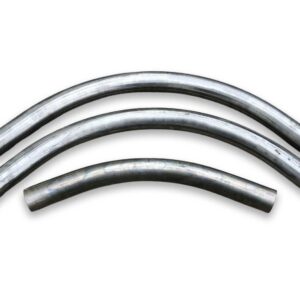Dry bulk material handling involves storing, discharging, and transporting dry materials in bulk quantities. This process is key to many manufacturing industries, including:
- Food and beverages
- Pet and animal food
- Tobacco
- Chemicals
- Plastics, polymers, and rubber
- Cosmetics
- Mining and minerals
- Paper and textiles
- Pharmaceuticals
Raw materials are delivered in large containers to factories and processing plants by trucks, ships, or trains. They typically come in bulk bags (big bags, flexible intermediate bulk containers [FIBCs], super sacks), boxes (octabins), or rigid bins. Once they arrive, they’re unloaded to a large yard or storage facility, where they’re typically stored in stockpiles.
When it’s time to process these raw materials, they’re fed into a dry bulk material handling system such as a pneumatic conveying system. These systems transport materials from the inlet to different units in the processing plant. They may also be used to store, blend, break down, or otherwise further process dry bulk materials.
What are dry bulk materials?
The term “dry bulk materials” refers to large quantities of typically unprocessed dry materials that come in powder, granule, flake, pellet, or lump form. Common dry bulk materials include:
- Minerals and ores
- Coal
- Cement powder
- Grain
- Sugar
- Flour
- Salt
- Pet food
- Plastic pellets
However, not all dry bulk materials can be handled in the same way. The particular characteristics of any material affect how you should fill, discharge, convey, or mix in your application. Characteristics that differ between dry bulk materials include:
- Particle size
- Particle weight
- Bulk density
- Material form
- Flowability (as defined by the angle of repose) and fluidization
- Liquid content (percentage of water, fat, or oil, and whether the material tends to absorb moisture from the air)
- Abrasiveness
- Fragility
- Temperature sensitivity
- Tendency to pack under pressure or vibration
- Whether it’s hazardous, toxic, corrosive, explosive, or flammable
The flow characteristics of a particular dry bulk material can also differ between suppliers. For example, they might be more or less compact, or have different levels of component elements, such as the amount of fat in milk powder.
Dry bulk material handling equipment
Dry bulk material handling systems typically feature heavy, stationery machinery designed specifically to process dry and powdered materials. These materials are placed in a storage vessel within the system and are transferred to a second destination for processing.
Machinery that often appears in dry bulk material handling systems includes:
- Blowers
- Bucket elevators
- Bulk tankers
- Conveyor belts
- Filters and dust collectors
- Hoppers
- Mixers and blenders
- Screw conveyors
- Ship loaders
- Storage silos and vessels
- Toploaders
The precise arrangement and method of conveying in a dry bulk material handling system should match the material it’s designed to convey. Dense materials like coal and ores require heavy machinery such as metal conveyor belts and mine carts. But finer, lower-density materials such as sugar and grains can be processed using a pneumatic conveying system.
Some materials also have special handling requirements. For example, processing foodstuffs requires food-grade equipment that complies with sanitary regulations. And explosive or flammable materials such as sulfur powder require a carefully calibrated flow rate to maintain temperature control.
Keep Reading: Guide to Selecting Pneumatic Conveying Bends
Why is dry bulk material handling important?
Materials processing is labor-intensive. But processing materials in bulk allows manufacturers to save money and time, and reliably meet their customers’ high demands. As such, dry bulk material handling is an essential part of almost every industry in the world.
Everything from construction and industrial processes to power generation and food production involves dry bulk material handling at some stage. So without safe, efficient dry bulk material handling, it simply wouldn’t be possible to meet the needs of the global community.
Reach your manufacturing potential with industry-leading components
A reliable, high-performing dry bulk material handling system is the key to consistently meeting your production goals while keeping costs down. That means it’s important to build your system with durable parts designed to boost efficiency, reduce downtime, and save money on maintenance and repairs.
Our inventory of industry-leading pneumatic conveying components makes it easy for you to reach your production potential no matter your industry. Before adding components to your cart, you can customize their materials and dimensions to meet your specific needs. And rather than waste time on long sales calls, you can order your replacement parts online in just a few clicks.
Visit the PneuComponents online store now to optimize your pneumatic conveying system with high-quality, long-lasting parts.
As a part of Progressive Products, Inc, PneuComponents draws on over 40 years of technical expertise and industry innovation to give you the best possible guidance and service. Progressive Products is an industry-leading manufacturer of abrasion-resistant components, and their products are used in pneumatic conveying systems worldwide.
-
Stainless Steel BendsPrice range: $54.42 through $376.47
-
Carbon Steel BendsPrice range: $22.83 through $198.45
-
Aluminum BendsPrice range: $16.57 through $124.62



